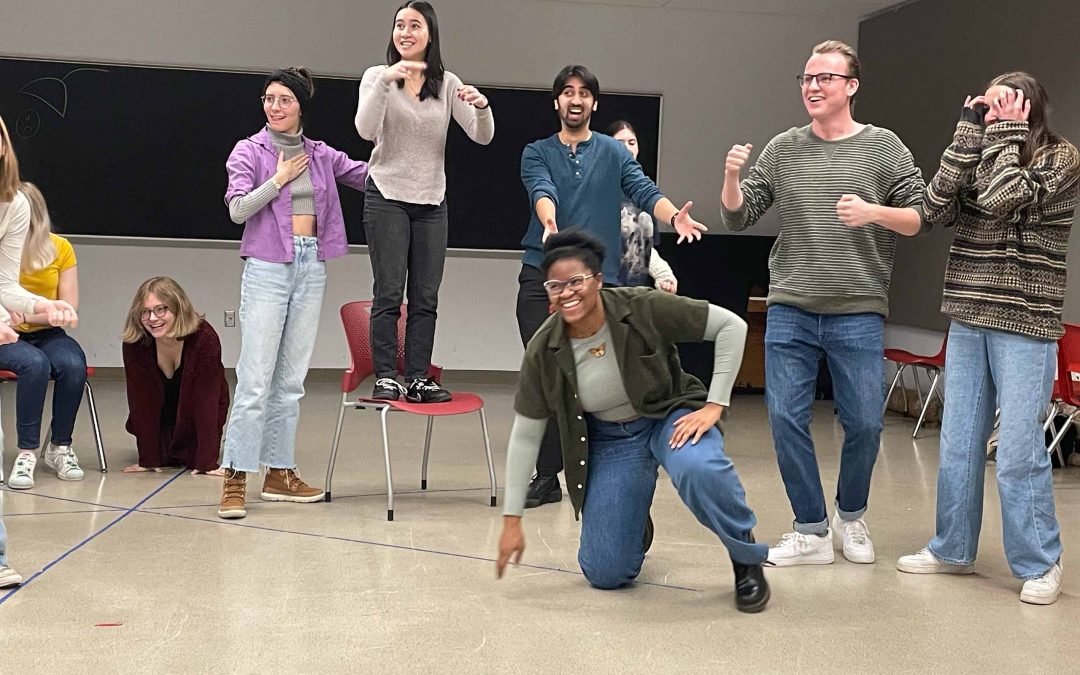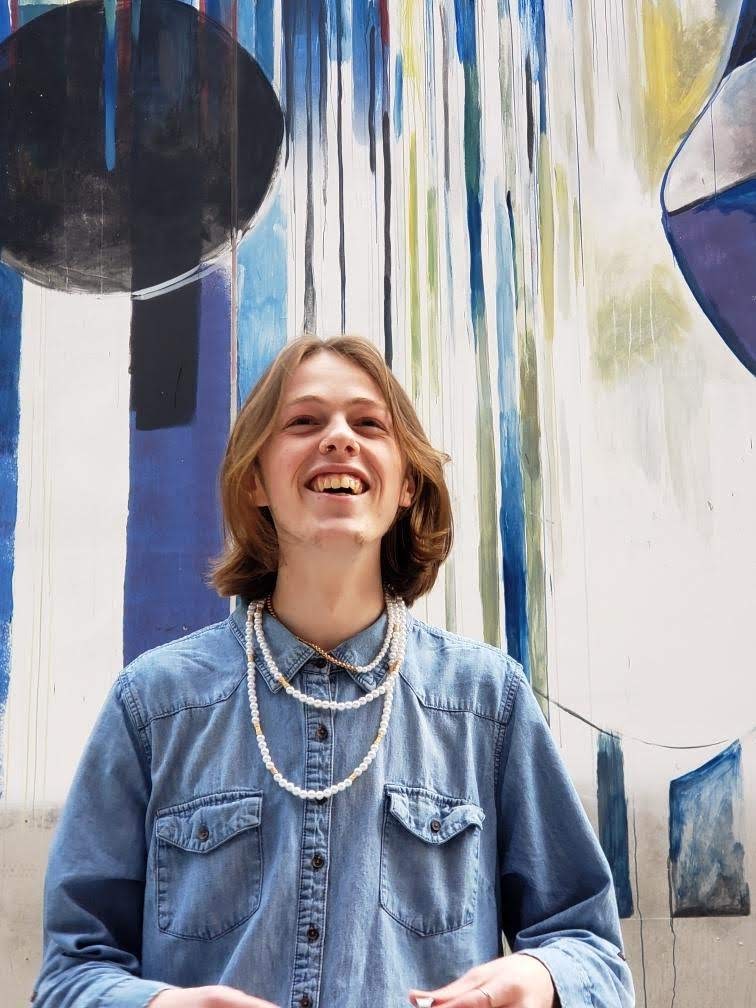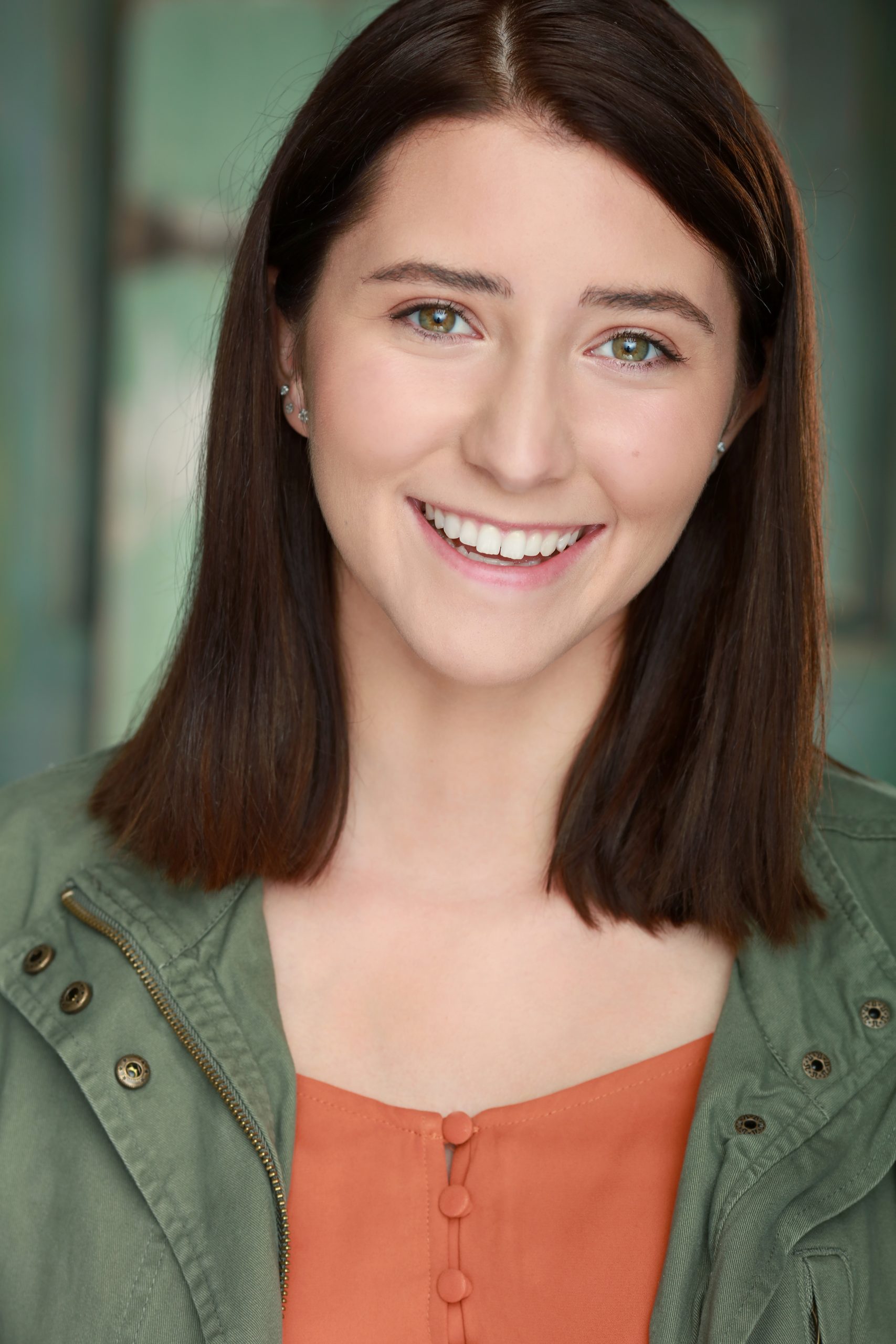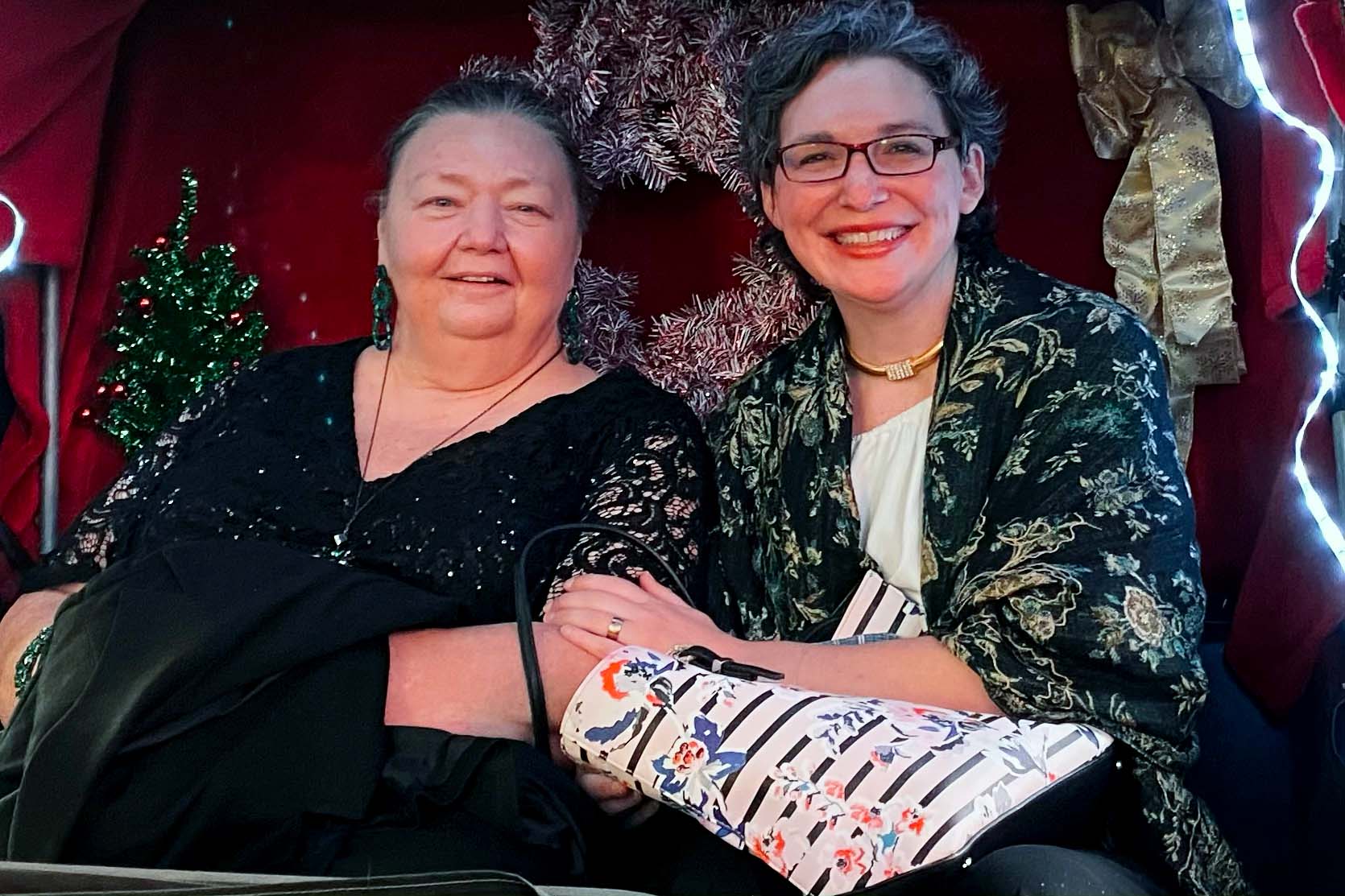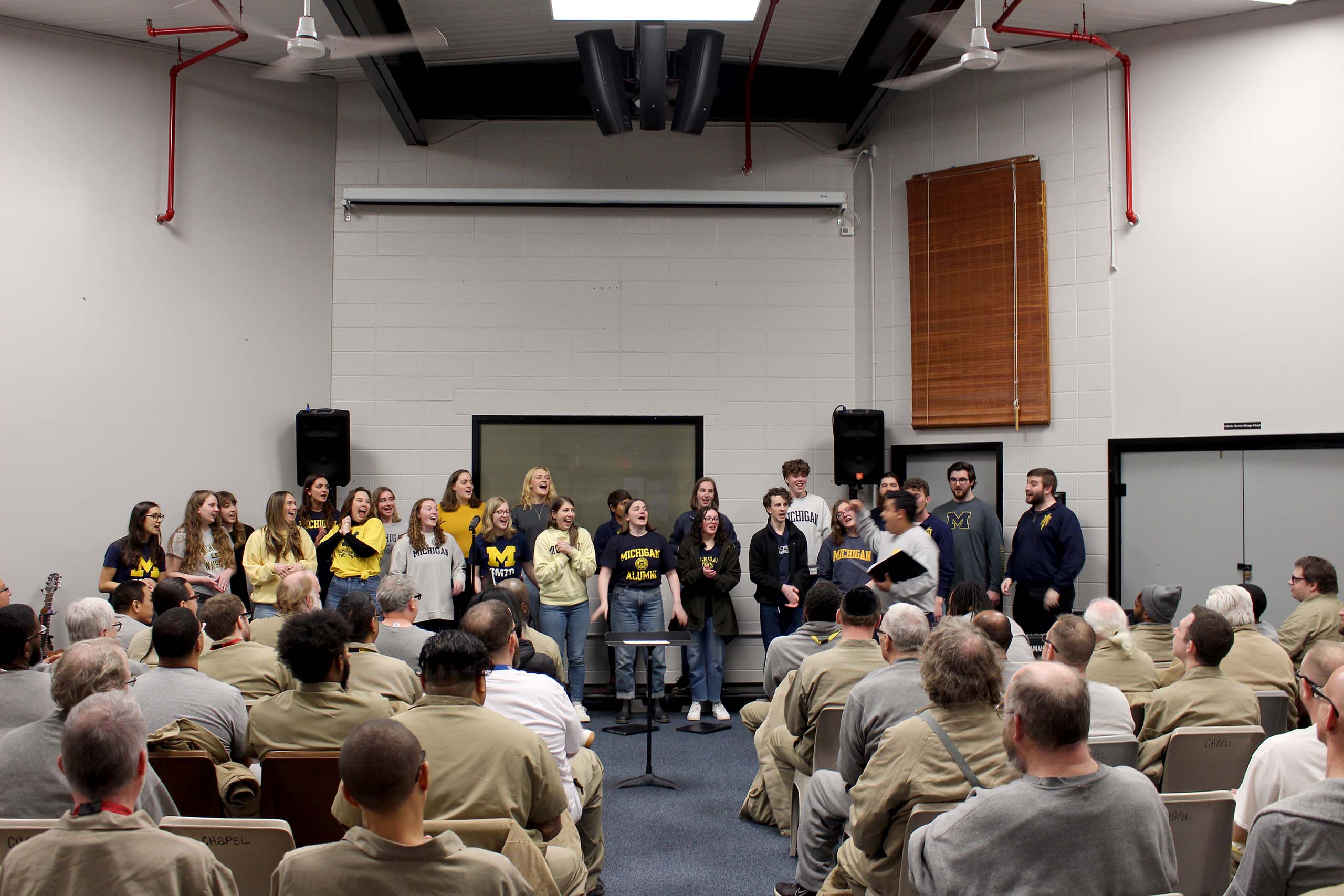Michigan Muse Summer 2023 > SMTD and the Prison Creative Arts Program
Performing Arts That Soothe the Soul: SMTD and the Prison Creative Arts Program
By Marilou Carlin
On the first day of “Theatre and Incarceration,” a course offered through U-M’s Prison Creative Arts Project (PCAP) at the Residential College, students take part in improvisational theatre games – games that will figure heavily in the weekly workshops they’ll soon facilitate with incarcerated people at various Michigan prisons. The course is open to students from across the university and usually draws a very mixed group of participants, many of whom are engaging in theatre for the first time. But in the winter ’23 semester, 19 of the 22 students who had enrolled were SMTD theatre or musical theatre students. And that made for a very different first day.
“I usually have to really ramp up my energy for the first class as I make the students realize that they’ll be playing these silly games in prison and have to become comfortable with that,” said Ashley Lucas, professor of theatre & drama and the Residential College. Lucas co-teaches the course with Mary Heinen McPherson (MSW ’12), PCAP’s co-founder and program coordinator. “But the SMTD students jumped up and reacted with, ‘I see your level of energy, and I’ll raise it!’ I was sweating and exhausted by the end of that class because they were so amazing – their excitement, their energy! They were so talented, so off-the-charts funny and wonderful. Mary and I joked that we could have charged admission!”
Playing improv games in the “Theatre and Incarceration” class, LSA senior McKenna Forster (crouching, left) with SMTD students Aquila Ewald, Victoria Vourkoutiotis, Nathan Goldberg, Jack Weaver, Leah Block, and Arin Francis (front).
The increased number of SMTD students enrolled in “Theatre and Incarceration” can be attributed, in part, to a new theatre & drama requirement to take one of the three elective theatre courses focused on diversity, equity, and inclusion. But just as importantly, there is a surge of interest among theatre and musical theatre students in social justice issues and, especially, in using theatre for social change.
For some, like rising senior Sam Aupperlee, the course became a priority as soon as they heard about it their first year. Aupperlee is taking a double major in playwriting and social theory in practice, so it was a natural fit. “I was really excited by the prospect of art that actually has an impact on people and means something – art that tangibly impacts communities,” they said.
The six students in Aupperlee’s group were expecting to have at least eight to ten inmates in their workshop. Instead there were only two, after prison staff prohibited several individuals from joining for various reasons. “It was initially a little scary that it would be that intimate, but it didn’t take long to realize it was going to be a wonderfully collaborative space,” said Aupperlee. “They were there very intentionally to cultivate something that they wanted to express – to create something with us, not just follow a script and learn.”
Each of the two incarcerated participants had written pieces they wanted to develop. Both pieces were critical of prison rules and practices, so the group set to work on making them acceptable for an audience that would include prison staff. Aupperlee said that many of the workshops consisted of conversation – “a lot of listening and learning” – which heavily informed the final piece, a sort of musical with improv and humor that delighted its audience.
Gaining a New Perspective
Aquila Sol, a musical theatre major with a minor in performing arts management (BFA ’25), found that working with the prisoners had a significant impact on her. “Once you do this kind of work, it’s impossible to move on from it when the semester is over,” she said. “Once you go in, there’s no going back – and by that I mean, you have to go back. Getting a chance to get to know some of these guys really makes it impossible to get on with everyday life as you did before, because it gives you a new perspective on a lot of things.”
Heinen McPherson witnesses the profound effect the prison visits have on the students each time they return to class. “They come back with all these insights and revelations about themselves and about the human condition, and they want to share them,” she said. “Once you meet folks in prison and see how the other half lives, it really changes you. It changes your perspective on human beings, on your own privilege, it opens up your heart. And once your heart is open, that’s when real change happens.”
Sol also chose “Theatre and Incarceration” because of her strong interest in “service through theatre.” Her other experience in that arena is with MPOW (Michigan Performance Outreach Workshop), a U-M group that introduces elementary schoolchildren to the performing arts in hands-on workshops on campus. She wasn’t sure what to expect with adult men in prison workshops, but she quickly discovered there was no real difference.
Once you meet folks in prison and see how the other half lives, it really changes you. It changes your perspective on human beings, on your own privilege, it opens up your heart. And once your heart is open, that’s when real change happens.
“Everyone in the room was just a person, not a student and an incarcerated person,” she said. On her first visit, she added, the hardest part was having to part company at the end of the session. “We all got to go back to Ann Arbor and our everyday lives. It was a Saturday, so we had our Saturday night plans, but the inmates were still there. And that part never got easier.”
That level of empathy and caring is standard among the theatre students, according to Lucas, who says it makes them remarkably adept at making the incarcerated people feel comfortable and included. “They are also capable of compelling the participants in prisons to raise their game pretty quickly, to actually accomplish art in a way that feels sophisticated and proficient. The last semester was magical to me for the level of theatre work.”
Theatre Started It All
Theatre has always been a cornerstone of PCAP, though in recent years the program has been especially well known for its annual exhibit of art by incarcerated Michigan artists, which takes place each spring in the Duderstadt Gallery – it is the country’s largest curated exhibition of prisoner art. Others learn about PCAP through an annually published literary review showcasing Michigan’s best incarcerated writers. Both are the result of PCAP’s extraordinary growth and success.
But the program was founded in theatre in 1990, thanks to individuals on both sides of the prison wall: Mary Heinen McPherson (then Glover), who was serving a life sentence at the Florence Crane Correctional Facility in Coldwater, and the late William “Buzz” Alexander, a U-M English professor. Heinen McPherson had spent years, along with seven of her peers, fighting in the courts for funding and access to prison education and legal counsel for incarcerated women. She was the lead plaintiff in several class actions against the Michigan Department of Corrections, including a 1977 case that resulted in female inmates in Michigan prisons gaining access to better educational opportunities, wages, and more.
“PCAP would not exist if Mary had not been in prison filing lawsuits for women to have access to higher education,” said Lucas.
As a result, Heinen McPherson was studying for her undergraduate degree at U-M in 1990, through a program that partnered her with a student proxy named Liz Boner, who was taking a course titled “Theatre for Social Change,” taught by Alexander. The course required its students to conduct a weekly theatre workshop somewhere off campus. Boner asked to do hers at Crane. Alexander not only granted Boner’s request, but joined her in launching the workshop. Heinen McPherson was the first to sign up, eager for the opportunity to “make some noise.”
“At that time, there were a lot of rules about silence,” she said. “You couldn’t run, you couldn’t sing, you couldn’t dance, you couldn’t touch – anything that made you human wasn’t allowed, and that’s just no way for young folks to live. I thought the sentence was being exiled and locked up, but there’s so much more to it.”
The workshop was an instant success, and a core group of those first participants, including Heinen McPherson, formed the Sisters Within theater troupe, now the longest running women’s prison theatre company in North America. “Buzz felt that this was the most transformative pedagogical moment of his career,” said Lucas. “He thought the students had learned more from this experience than from anything else he’d ever done as a teacher.”
You couldn’t run, you couldn’t sing, you couldn’t dance, you couldn’t touch — anything that made you human wasn’t allowed, and that’s just no way for young folks to live.
Alexander committed himself to growing PCAP into the powerhouse it has become. Heinen McPherson was paroled in 2002 and joined the PCAP staff several years later. Over its 32 years, the program has evolved into offering workshops in theatre, creative writing, photography, the visual arts, and music, with nine undergraduate courses aligning with them. Prior to the COVID pandemic, the program served 27 Michigan prisons as well as youth facilities. PCAP later created the Linkage Community, which offers programming and opportunities for formerly incarcerated artists.
Mary Heinen McPherson (left) and Ashley Lucas
Theatre as a Means to Connect with Humanity
The theatre workshops, from the start, have provided a unique function for the imprisoned people who participate in them. They offer a fun way to have social interaction with their peers and the facilitators, but they also provide a means to communal problem-solving in their daily lives, according to Heinen McPherson.
“It gave us the opportunity to act out, and think out, and work out problems that we had in our everyday existence that you couldn’t do anywhere else,” she said. “For me, that was just an amazing thing because it allowed you to grow in a situation of torture. So theatre was not only enjoyable, and a release, and educational, but it kind of soothed our souls.”
Those who join prison theatre troupes develop deep emotional attachment to the work, which has been documented in many books and articles by scholars. It is often cited by incarcerated artists as the one thing that keeps them from considering suicide. Lucas wanted to know why theatre has so much power, so she interviewed prison theatre makers in 10 countries while researching her book, Prison Theatre and the Global Crisis of Incarceration (Methuen Drama, Bloomsbury Publishing, 2020). She came to conclude that their passion for theatre was rooted in its ability to help them accomplish other key things: building community, developing professional skills, achieving social change inside the prison, and, perhaps most importantly, maintaining hope.
“In doing all of these things, incarcerated people gave new meaning to the theatre for me,” said Lucas in a presentation she recently made in Brazil. “I believe they have much to teach professional theatre makers about what theatre does and can do.”
Lucas was hired into the Department of Theatre & Drama and as the director of PCAP in 2013, the first trained theatre professional to oversee the program, establishing the first direct connection to SMTD. This allowed her to deepen and explore performance work in new and interesting ways including, for six years, annual visits to Brazil with a group of theatre students (a facet of U-M President Mary Sue Coleman’s Brazil Initiative). In an exchange with the Universidade Federal do Estado do Rio de Janeiro and the Universidade do Estado de Santa Catarina, Lucas and her students collaborated with their hosts on theatre work inside prisons, hospitals, and favelas (defined as “slums” or “shantytowns” in Brazilian cities). In a reciprocal exchange, Brazilian students and professors traveled to Ann Arbor and visited Michigan prisons with U-M students, which they will do again in winter 2024.
Lucas stepped down as director of PCAP in 2020 (she is now director of Latina/o Studies, a program of the Department of American Culture at LSA), but, as one of its professors, remains firmly entrenched in PCAP’s mission of bringing incarcerated individuals together with the U-M community for artistic collaboration, mutual learning, and growth.
“It is a profound honor for me to do this work because so few people get to have meaningful interactions with incarcerated artists,” said Lucas. “I’ve met stunningly talented and thoughtful, creative, intelligent, problem-solving peacemakers in prisons all over the world, and I do everything I can to connect our students with these folks.”
The students are deeply grateful for that opportunity. Both Aupperlee and Sol intend to continue working with PCAP as volunteers, despite the challenges of working it into intense schedules that often include SMTD rehearsals and performances. “No matter what,” said Sol, “I’ll be involved with PCAP in some channel for as long as I can.”
The Power of Choral Music: Out of the Blue
In addition to the longstanding theatre-making partnership, SMTD and the Prison Creative Arts Program (PCAP) also combine forces to bring choral music into prisons through Out of the Blue, an auditioned choral ensemble that first formed in the fall of 2017. The ensemble is available to current and former U-M students and members of the community. Each semester, members prepare and rehearse a carefully selected repertoire including classical and pop music, and they visit correctional facilities to perform for and talk with inmates. They also receive training from the PCAP office and the Office for Diversity, Equity & Inclusion, learning about the history of the Michigan prison system and what to expect from their visits.
For the past two years, Out of the Blue has been led by Benjamin Gaughran (MM ’22, DMA ’25, choral conducting) as its music director. Previous music directors include former conducting students Adrianna Tam (DMA ’19), who is also the co-founder of Out of the Blue; Joseph Kemper (DMA ’21); and Katie Rohwer (MM ’21). Eugene Rogers, associate professor of music and director of university choirs, serves as the faculty director. Before coming to U-M, Gaughran – who is originally from the United Kingdom – spent 10 years as a high school music educator. He has been conducting for nearly 20 years, spanning everything from children’s choirs to professional ensembles, but one experience he had never had, before Out of the Blue, was doing outreach work in prisons.
Out of the Blue performing at FCI Milan, March 2023. Photo credit: Chaplain Jonathan Cooper
This past semester, Out of the Blue visited FCI Milan, a low-security federal correctional institution for men in Milan, Michigan, and the Women’s Huron Valley (WHV) Correctional Facility in Ypsilanti. For each visit, the choir performed, followed by opportunities to talk with the inmates. Those interactions were particularly important, Gaughran said, in helping get rid of any apprehension choir members may have had about the experience. “It really breaks down any misconceptions about prisons and what that’s like,” he noted. “There’s no judgment passed by anyone when we go into the space. Our intention is just to bring a human experience to people who are having less of a human experience, and we use music as the vehicle to do that.”
The response from inmates “is quite humbling,” Gaughran said. “People are just very grateful that we have taken the time to be there and that we are interested in them.” At WHV, the audience was extremely enthusiastic, cheering and applauding during every song. “One of the things I say to encourage people to join,” Gaughran said, “is that, if you want a choral experience that is unique and different from any other choral experiences that you’ve ever had, then Out of the Blue is the place to be.”
Gaughran, who will hand the directorship of the choir to Sydney Mukasa (DMA ’25, conducting) this fall, is keenly aware of how the experience has changed him. “It definitely helped me pause to reflect on the power that the art of choral music has to change people, both the performers and the audience.”

